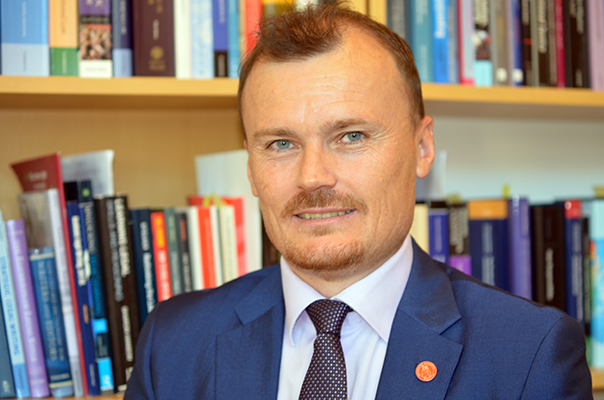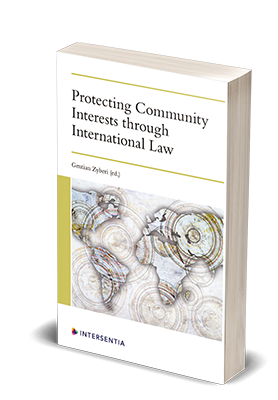| Interview |


Author speaking: Gentian Zyberi
Gentian Zyberi is a Professor of International Law and Human Rights and former Head of Department of the Norwegian Center for Human Rights (2018-2021), University of Oslo. He is a member of the UN Human Rights Committee (2019-2022) and of the Permanent Court of Arbitration (since 2016). Professor Zyberi has taught and researched in the areas of international human rights, humanitarian law, international criminal law and public international law at different universities in the Netherlands, Albania, China, the US, and Norway.
Could you please define Community Interests?
There are different definitions of this concept, including in my edited book. Thin defines community interest as a common interest, held by those actors possessing law-making authority in the international legal order, but which relates to a legal fiction that transcends the individual interests of all actors in the international sphere (Thin, p. 29). In my own chapter, I have followed Simma’s definition, perceiving community interests as a consensus according to which respect for certain fundamental values is not left to the free disposition of States individually or inter se but is recognized and sanctioned by international law as a matter of concern to all States (Zyberi, p. 318).
How are they protected and how do you think they should be? (International organization or individual application of the law)
Numerous international treaties have been adopted and numerous international institutions have been established over time with the aim of safeguarding community interests rather than the interests of individual States. The protection of community interests is not limited only to high-level or technical discussions in relevant international and regional fora, but can potentially be pursued through international adjudication before international judicial and quasi-judicial mechanisms. However, both among and within the three broad areas selected in my own chapter, namely collective human security, collective natural resources management, and world cultural heritage, the comprehensiveness and strength of the legal framework and the effectiveness of the institutions established under them differ. We need to continue to improve the decision-making processes and access to them and strengthen the work of these international institutions.
How are we affected if they are not safeguarded?
We are affected in various ways, depending on the community interest concerned. Thus, a State’s failure to protect its population against mass atrocity crimes, and the failure of the organized international community to exercise its residual responsibility to do so, results in deaths, injuries and displacement. Failure to adequately protect world cultural heritage leads to loosing, sometimes forever, invaluable tangible and intangible heritage. Failure to address climate change will lead to serious difficulties for millions in the best-case scenario and an uninhabitable planet in the worst-case scenario.
Could you give us more information about the challenges Community Interests face?
The challenges are manifold, from jurisdictional legal gaps to underfunded and poorly supported international and regional institutions, to ambiguous legal frameworks, ad hoc responses and inadequate implementation of international legal obligations. More recently, we have also seen an inward turn from certain States and a reduction of international cooperation and solidarity. The pandemic we are going through since early 2020 has highlighted some of these problems and has shown how problems will persist and perhaps even grow in the absence of proper international cooperation and solidarity.
Nowadays, in your opinion, what are the main risks?
Some of the main risks are great power competition, which not only reduces possibilities for consensus on important matters, but also increases chances of direct confrontation, weak international and national institutions, authoritarian tendencies and a weakening of public trust in authorities, and the deleterious effects of manipulated social media on democracy and public discourse. As I mentioned above, there has been an inward turn by certain States and a reduction of international cooperation and solidarity.
We are talking about how to address the future of humankind. How do you see the future?
Let me be a cautious optimist. The future of humankind is what we will make of it. That depends very much on how the most important State and non-State actors will behave, what will be prioritized in setting international agendas, and to what extent community interests are going to be given priority over short-term individual State-interests. We have the tools and the knowledge to turn things around, but it seems that revived great power rivalries and other challenges are preventing the channelling of positive energies on addressing some key problems.
About the book


Protecting Community Interests through International Law
This book analyzes the function and role of international law in a framework of increased global governance by focusing on how 'community interests' are articulated and protected in various areas, including the global commons, and human rights and security related issues.
Gentian Zyberi
November 2021
ISBN 9781839701122